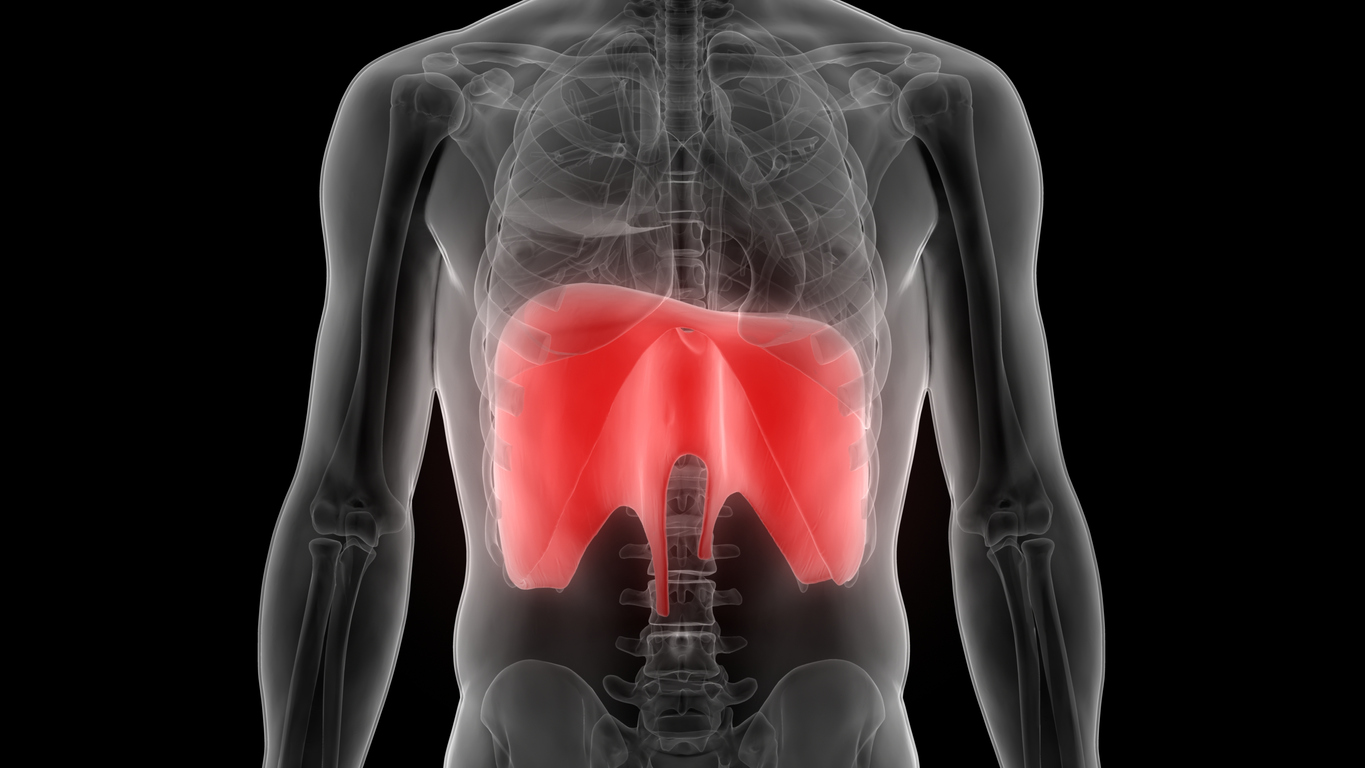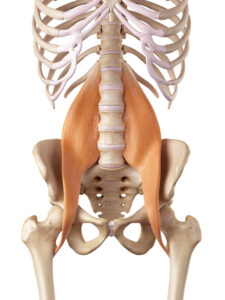
The psoas major is a large muscle connecting the back, legs, and pelvis, and it plays a critical role in mobility. Physiologically, the psoas major, arising from the spine and attaching to the femur bone, supports bending the hips and outward rotation of the thigh as well as bending the trunk forward and to the sides. Evolutionarily, the psoas major is activated during the body’s fight or flight response, contracting in preparation for self defensive action. In some spiritual traditions, the psoas major is associated with the root, sacral, and solar plexus chakras–which are, more or less, involved with qualities of safety, emotion, and taking action.
Given that the psoas major is contracted during times of perceived threat (either physical or psychological), it is a reservoir for holding trauma and stress through lingering tightness. Large bundles of sympathetic fibers are innervated throughout the psoas major. When our bodies feel fear, the muscles ready themselves to attack, run, or bend forward, protecting vulnerable organs of the abdomen and pelvis. After the threat has disappeared, the muscles need to dispense excess energy through movements such as shaking or stretching, returning the muscles to their relaxed states. However, while we are at work or in a car or rushing around to finalize our checklists, we don’t often get the chance to fully release our stress in this way. Stressors combined without proper release of the hip muscles (i.e., sedentary lifestyles) often results in shortened psoas length, and associated tension in the psoas muscles. This storage of stress can then influence everything from our breathing patterns and organ function to our posture and biomechanics to our sense of relaxation and readiness to respond to the environment.
Physical and Mental Health Implications
A chronically contracted psoas due to traumatic events or chronic stressors will affect structural balance and alignment as well as internal organ functions. A tightened psoas major is the common cause of lower back pain, hip joint issues, cramping sensations in the pelvis, and impaired mobility. The impact of a tight hips will negatively affect posture and may begin to cause discomfort during walking or exercising, limiting a person’s physical activity level and self-care routines. Tension in the psoas muscles can lead to inflammation of the area, impinging local nerves and tendons. It may also cause shallow breathing, limiting oxygen intake, and inhibit digestion. Consequently, people may experience a range of symptoms, including disrupted sleep, digestive disorders, and a general sense of unease. It is thought that a tightened psoas may also exacerbate anxiety by signaling back to the brain that it is contracted and hypervigilant, being in a constant state of alert.
Caring for the Psoas

Addressing the health of the psoas muscle requires a comprehensive approach that might encompass physical, emotional, and spiritual perspectives.
- Physical Care: Gentle movements that stretch the psoas such as a kneeling lunch or pigeon pose, can help release muscle tension. Likewise, targeted pressure release by foam rolling or massage gun can stimulate muscle relaxation; however, a note of caution here to watch for pain that might actually contribute to even more tightening. There is emerging research for a number of exercises such as Trauma Release Exercises for muscle relaxation; plan for emotional release to occur in parallel here and make sure you have the support you need. Professionals like physical therapists or chiropractors can offer additional insights and modalities including massage, myofascial release, or exercises for strengthening weakened muscles in the area. An integrative approach to muscle care might include heat or cold therapy, which may activate various aspects of the nervous system, increase muscular blood flow, and reduce inflammation.
- Emotional-Spiritual Care: Deep abdominal breathing stimulates the vagus nerve, telling the body it is safe. Trauma-informed therapies may help individuals explore and resolve the emotional burdens that may be contributing to their physical symptoms. Mindfulness and meditation practices can be particularly effective in bringing awareness to bodily sensations, including muscle tension/relaxation, fostering a deeper mind-body connection.
Conclusion
The psoas-brain connection is a network of convergence for emotional, physical, and spiritual wellbeing. Paying attention to the psoas muscle and incorporating energy releasing therapies for clients may actually support healing for a number of physical and psychological ailments.







